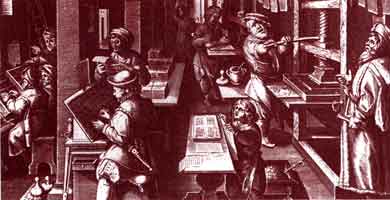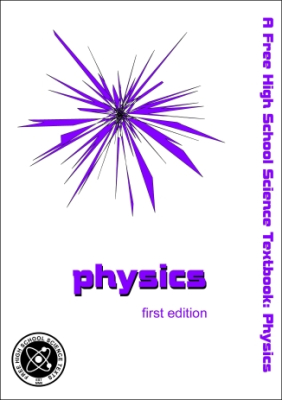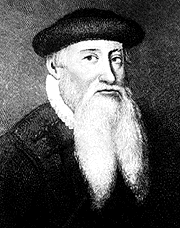No more textbooks? What would Gutenberg say?

I wrote about Wikibooks a few days ago, but I dont' want to give the impression that I think textbooks will soon disappear.
There are economic reasons for them staying around: academics write them & academics assign them; it is an industry that will work hard to retain its place in the market; it's the easiest (not the best) way to create a course "curriculum" (that's hard to even type!).
I do think that they will begin to supplement course textbooks or become part of a package of readings and resources (none of those being an actual traditional textbook) that are used in a course. I think of undergraduate literature courses I had many years ago that required a dozen works of fiction but didn't demand any certain edition, and were supplemented with handouts & reserve readings.
I have seen in several places online the suggestion of using a wikibook as a longterm assignment for students. The examples I've read were all K-12 but could apply to higher ed.
Say I am teaching an American literature survey course using an anthology. I assign students to select a chapter of the book to "rewrite." They would review the chapter (probably in this case it would be a time period) and determine what was missing from it: primary sources, links to online materials (author sites, public domain literature for comparison or contrast) other perspectives (women, minority literature, the influences of music, art, historical events). Now, imagine if this researched material was collected in an online wikibook format (rather than the traditional individual papers which might not ever be seen by anyone but the instructor). It's easy to see benefits to the students: a real audience for their research (worldwide if you want to post it in a public place), collaborative experiences, mini-lessons in copyright, fair use, & judging materials found online etc. It's easy to see benefits for the instructor: a resource that helps those students and can be reused & shared and is dynamic enough to continue on its own, new perspectives on your curriculum, even something other than 30 papers to read and evaluate.
 The Wikimedia Foundation hosts the Wikibooks project which already has almost 12,000 submissions in various stages of development.
The Wikimedia Foundation hosts the Wikibooks project which already has almost 12,000 submissions in various stages of development.An interesting wikitextbook project is the FHSST: Free High School Science
Texts, initiative that is trying to develop science textbooks for high school students in South Africa. The link is to physics but they are working on biology, computer literacy, and chemistry texts. (You can look at the entire South African national curriculum at http://en.wikibooks.org/wiki/South_African_Curriculum.)
MIT's Open Courseware project has already gotten a lot of attention in higher ed with its resources for faculty, students and self-learners around the world.
There's a Virtual Textbook of Organic Chemistry from Michigan State at www.cem.msu.edu/~reusch/VirtualText/intro1.htm
The site Textbook Revolution is a good aggregator of information about this topic. It looks like a blog, but is really just using a blog software format for site creation. Their links page will send you to book projects and they have projects categorized by subject area. They are also looking at open courseware efforts that go beyond the "textbook."

What would Johann Gutenberg think of all this?
Would he be happy with Project Gutenberg, the oldest producer of free ebooks on the Internet?
There are 18,000 free books in the Project Gutenberg Online Book Catalog and 2 million ebooks are downloaded each month. That sounds like revolution to me.
Comments
No comments